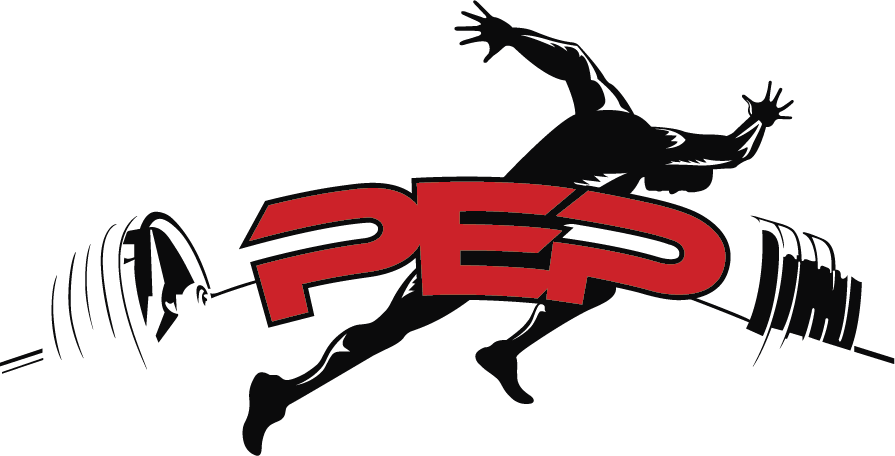
As an athlete, proper hydration is important to keep you going, but sometimes water just doesn’t do the trick. Many of the traditional sports drinks you find in stores have large amounts of sugar and fillers that really aren’t beneficial to your performance, so it’s better to skip those all together.
Consuming too little fluid is the problem we see most often, but consuming too much fluid can also be a problem. So how do you know what the correct amount is? Or if you should be drinking water or a sports drink? The truth is, there’s a little more to hydration than meets the eye. Maintaining proper hydration is not only a physiological necessity, but it also provides a performance advantage and reduces risks of medical problems or injury due to fluid loss.
Why Hydration Is Important
Water comprises about 60% of the human body and nearly every body system relies on it to function optimally.
Some of the main functions of fluid include:
-
- Carry nutrients to cells
- Flush toxins and bacteria from the body
- Maintain regular bowel function
- Reduce inflammation and promote cartilage health
- Retain hydration in the skin
- Reduce muscle fatigue
- Act as a solvent for chemical reactions
- Maintain proper blood volume and circulation
- Regulate body temperature
For athletes specifically, proper hydration before, during, and after activity is key to optimizing exercise performance. Ensuring adequate hydration throughout the duration of exercise reduces fluid loss, lowers sub-maximal heart rate, maintains plasma volume, and reduces the potential for heat stress, heat exhaustion, and/or heat stroke [1]. This is true of any physical activity, but is crucial for prolonged training sessions and competition events.
When excessive fluid loss occurs (dehydration), it severely impacts performance. As blood volume decreases and body temperature increases, it places more strain on the heart, lungs, and circulatory system to push blood throughout the body to maintain muscle function and thermoregulation (Bean, 2013). Blood flow to the skin is necessary to allow the body to move heat to the periphery and enable sweating. But as dehydration becomes more severe, the competition between moving blood to the working muscles and the skin increases, which causes a reduction in venous pressure and cardiac output. This stress means that exercise becomes much more difficult and performance levels drop [2].
There is a general consensus that with a loss of just 2% of body weight, performance levels will decrease and maximal aerobic capacity will decrease by up to 10-20% during endurance activity lasting longer than 90 minutes (Armstrong et al., 1985). Above this 2%, nausea, vomiting and diarrhea persist, while at 5%, aerobic capacity drops by a staggering 30%.
How Much Fluid Do I Lose?
Fluid loss depends on 4 factors:
-
- Exercise intensity
- Exercise duration
- Temperature and humidity of environment
- Individual body chemistry
Taking into account these four factors, every individual will lose fluids at a different rate. Some athletes will sweat more than others, which means they will lose more fluid and therefore need to replace more. As well, females tend to sweat less than males due to smaller physical stature and greater economy in fluid loss (Bean, 2013).
You can roughly estimate body fluid loss by weighing yourself before and after exercise. For every 1kg of bodyweight lost during intense physical activity, roughly 1L of fluid is also lost. That means that to maintain proper body function, fluids lost must equal fluids replaced, if not slightly more.
As an athlete, it’s important to know your sweat rate so that you can put proper hydration practices into place. You can use the following calculation [3]:
SWEAT RATE = [ (Pre Weight – Post Weight) + Fluid Consumed – Urine Volume ] / ( Exercise Time / 60 )
How Much Fluid Do I Need?
Most articles and books about hydration advise 2-3L of water per day to maintain adequate levels of hydration. However, when physical activity increases, or even just an increase in body temperature enough to initiate sweating, fluid intake needs increase also.
1. Before Exercise
The goal before training is to ensure you’re already well hydrated. If hydration isn’t at an ideal level, performance will suffer right from the beginning. Checking urine colour is a quick and easy way to test hydration levels. A properly hydrated individual should have pale yellow urine.
According to the American College of Sports Medicine (ACSM), sipping on 5-7ml/kg bodyweight approximately 4 hours before exercise is ideal to properly hydrate the body, but also allow for proper excretion of excess fluid (Bean, 2013).
2. During Exercise
The amount of fluid that an individual should consume during activity will depend on how intense the workout is, the duration of the workout, and how much sweat the individual is producing. As such, there are no strict guidelines for hydration during exercise because of these factors.
Studies have shown that a 2% loss in bodyweight produces minimal impact to athletic performance, but losses exceeding 2% will result in quite a drastic drop in performance.
But if you’re not thirsty, don’t force yourself to drink. Drink only to a point that you’re maintaining weight, not gaining it.
3. After Exercise
When exercise has finished, it’s important to rehydrate. As we’ve mentioned, the extent to which you need to attain fluid balance again will depend on the intensity and duration of exercise. More often, sodium and potassium levels will decrease post-exercise due to sweat loss.
As a rule of thumb, for every 1kg loss of bodyweight during exercise, approximately 1.2-1.5L of fluid should be taken in to rebalance fluid levels in the body. It is important, however, that fluid is replaced slowly and not all at once, even if you feel as though you’re incredibly thirsty. It’s generally recommended that athletes who train at high intensities or multiple times per day consume sports drinks to restore electrolyte levels, as well.
Why Hydration Is Key To Recovery, Too
You often hear that staying hydrated is important to your performance, but it’s also key to your recovery. Recovery from exercise is all about balance. The body works really hard to maintain homeostasis — the tendency of the body to maintain a condition of equilibrium or stability within its internal environment when dealing with external changes [4].
Many critical functions are controlled homeostatically, including body temperature regulation, blood pH, and fluid balance; the latter of which is particularly important to athletes.
As sweating increases during activity, the amount of sodium and potassium, as well as other electrolytes, lost also increases. In order to enable proper recovery, the body must replace the lost fluid and electrolytes to rebalance itself.
So why exactly does hydration matter to recovery? For a few reasons…
-
- Muscle Repair — When we go through an intense bout of exercise, our muscles take quite a hit. Muscle protein synthesis occurs after damage has ensued, but in order for this synthesis to occur, the muscles must be well hydrated. If the body is under any form of dehydration post-exercise, protein synthesis will be delayed.
-
- Digestion — Eating is crucial to recovery, but in order for food to be digested, fluids must be present in adequate amounts within the GI tract. For example, saliva is composed mainly of water and is a necessary component of digestion and absorption of nutrients that enter the mouth.
-
- Reducing Fatigue — Everyone knows that when muscle cramps and fatigue happens, you’re usually dehydrated, which makes performing well quite difficult. But when you’re dehydrated, blood volume also decreases meaning your body has to work harder to supply blood to the muscles and transport oxygen and nutrients. This not only hinders your performance, but also your ability to recover and prepare for your next training session or competition.
-
- Recovering Heart Rate — Athletes who hydrate properly during a workout may be at an advantage when it comes to heart rate recovery. A 2012 study performed on hydration and athletic performance found that individuals who hydrated with a sports drink, as opposed to no hydration at all, during a 90-minute treadmill run showed a significantly faster heart rate recovery [5]. This indicates that proper hydration throughout long-duration activity increases rate of recovery.
What About Sports Drinks?
Depending on the duration and intensity of activity, it may be advisable to supplement with a carbohydrate-based beverage. For activities like ‘easy pace’ swimming, cycling or jogging done for less than 30 minutes, no fluid or water is acceptable. Higher intensity activities like long-distance runs, sprints, or weight training lasting less than one hour do not need sports drinks, but small amounts of carbohydrates may prove beneficial. For activities lasting over one hour like marathons, football games, etc., replenishing fluid and electrolytes immediately is key.
For athletes who are training at moderate to high intensities for long durations, sports drinks are recommended. Drinks that contain approximately 40-80g of carbohydrates per litre act to promote hydration while maintaining normal blood sugar to enhance athletic performance during intense or prolonged activity (Bean, 2013).
But many of the sports drinks that are found in supermarkets are advertised to fuel athletes, but they’re usually nothing more than sodium, potassium, and sugar. Instead, we’ve given you a few homemade options to replace electrolytes and maintain proper hydration [6].
Cucumber-Lime Electrolyte Refresher
1/2 cucumber
2 limes, peeled
1 1/2 cups coconut water
Juice the cucumber and lime in a juicer. Mix the juice with coconut water. Enjoy chilled or over ice.
Homemade Gatorade
3 cups water
1 cup orange juice
1/2 cup lemon juice
3 Tbsp honey
1/2 tsp sea salt
Toss all ingredients in a blender and mix well. Enjoy chilled or over ice.
Herbal Cooler
4 cups herbal tea (something citrus preferably)
2-4 Tbsp raw honey or maple syrup
1/4 tsp. sea salt
A few drops of trace mineral drops (optional)
Mix all ingredients thoroughly, and store in the fridge. Drink chilled or over ice.
References
Armstrong, L.E. et al. (1985), ‘Influence of diuretic-induced dehydration on competitive running performance’. Med. Sci Sports Ex., vol. 17, pp. 456-61.
Bean, A. (2013). The complete guide to sports nutrition. London: Bloomsbury Sport, an imprint of Bloomsbury Publishing Plc.
Leave a Replay
About Us
Founder, Shea Pierre, has been training athletes for the last decade and isn’t slowing down. After gathering a decade of knowledge training athletes of all ages he is expanding into the digital realm. No more paying 1000s of dollars to expensive trainers, he is going to bring you the best programs in the WORLD all available online. There are a lot of new programs that are coming out in the next year.
Recent Posts
Follow Us
Sign up for our Newsletter
Lorem ipsum dolor sit amet, consectetur adipiscing elit. Duis leo tortor, ornare a condimentum vel.


